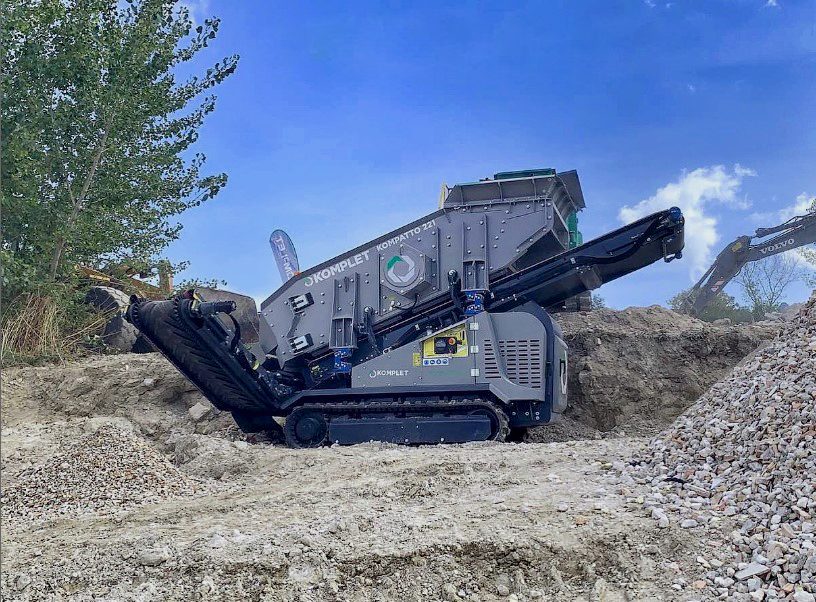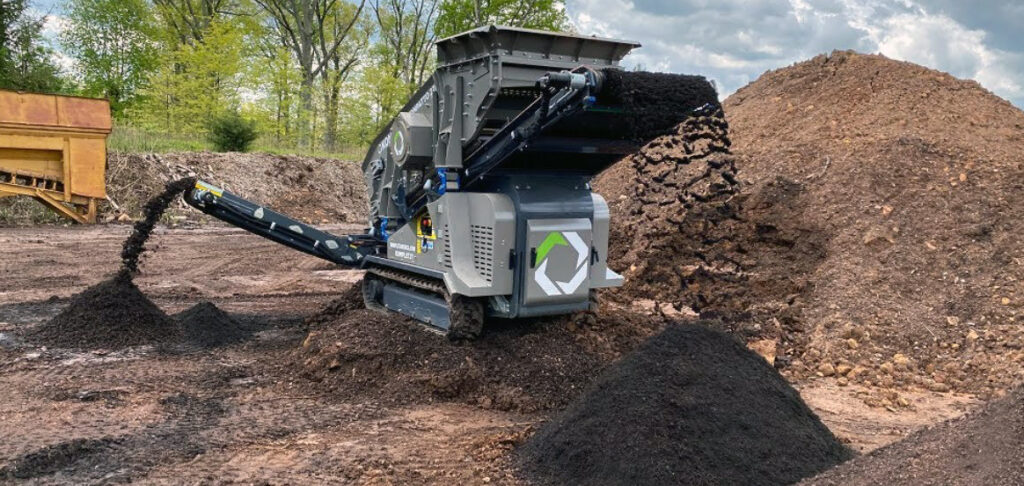Mobile screeners are indispensable tools in various industries, from construction to recycling. These machines play a crucial role in separating materials of different sizes, ensuring efficient processing and high-quality output. To keep your mobile screener functioning at its best, regular maintenance is key. Here are some essential tips to help you maintain peak performance and prolong the life of your equipment.
1. Regular Cleaning Of your mobile screener
One of the simplest yet most effective maintenance tasks is regular cleaning. Dust, dirt, and debris can accumulate on the screener, affecting its performance. After each use, make sure to clean the screens, belts, and other components thoroughly. Pay special attention to areas where material buildup is likely to occur. This will prevent blockages and ensure smooth operation.
2. Check and Replace Worn Parts
Mobile screeners have many moving parts that are subject to wear and tear. Regularly inspect parts such as screens, belts, and bearings for signs of wear. Replace any worn or damaged components promptly to avoid breakdowns and maintain efficiency. Keeping a stock of spare parts on hand can minimize downtime and keep your operations running smoothly.
3. Lubrication of your mobile screener
Proper lubrication is essential for the smooth functioning of your mobile screener. Follow the manufacturer’s recommendations for lubrication intervals and use the appropriate lubricants. Regular lubrication reduces friction, prevents overheating, and extends the life of moving parts. Be sure to check lubrication points and apply lubricants as needed.
4. Tension and Alignment of Belts
The belts on your mobile screener must be correctly tensioned and aligned to function properly. Loose or misaligned belts can cause inefficient operation and excessive wear. Regularly check the tension and alignment of all belts, and make adjustments as necessary. This simple step can significantly enhance the performance and longevity of your machine.
5. Regular Inspections of your mobile screener
Routine inspections are vital for identifying potential issues before they become major problems. Create a maintenance schedule that includes daily, weekly, and monthly inspections. Look for signs of wear, damage, or unusual noises. Address any issues immediately to prevent further damage and costly repairs.

6. Training and Safety
Ensure that all operators are well-trained in the use and maintenance of the mobile screener. Proper training can prevent misuse and reduce the likelihood of accidents. Additionally, prioritize safety by following all recommended safety protocols and using appropriate personal protective equipment (PPE). A well-trained team not only maintains the equipment better but also operates it more efficiently.
7. Record Keeping
Maintain detailed records of all maintenance activities, inspections, and repairs. This helps in tracking the condition of the screener over time and can reveal patterns that might indicate potential issues. Good record-keeping also ensures that you stay on top of scheduled maintenance and can provide valuable information if you need to consult with the manufacturer or a service technician.
8. Environment Considerations
The environment in which your mobile screener operates can impact its performance. Extreme temperatures, moisture, and harsh working conditions can cause additional stress on the equipment. Take these factors into account and adjust your maintenance routine accordingly. For instance, more frequent lubrication may be necessary in dusty or wet conditions.
9. Software Updates of your mobile screener
If your mobile screener is equipped with software for operation and diagnostics, ensure that it is up to date. Manufacturers often release updates that can improve performance, fix bugs, and add new features. Regularly check for updates and install them as recommended.
10. Manufacturer Support
Lastly, make use of the support and resources provided by the manufacturer. They can offer valuable advice, training, and technical support to help you maintain your mobile screener. Regularly consulting the user manual and staying in touch with the manufacturer can keep you informed about best practices and any updates relevant to your equipment.
Conclusion
By following these essential tips, you can keep your mobile screeners functioning optimally, ensuring efficient operations and maximizing the lifespan of your investment. Regular maintenance not only prevents costly breakdowns but also enhances the overall performance of your machine, contributing to the success of your business.

